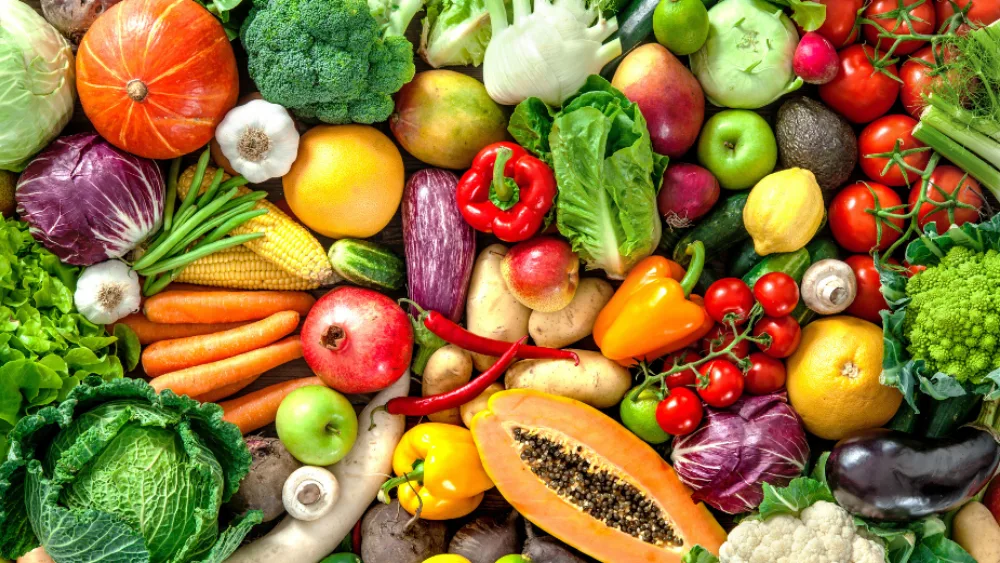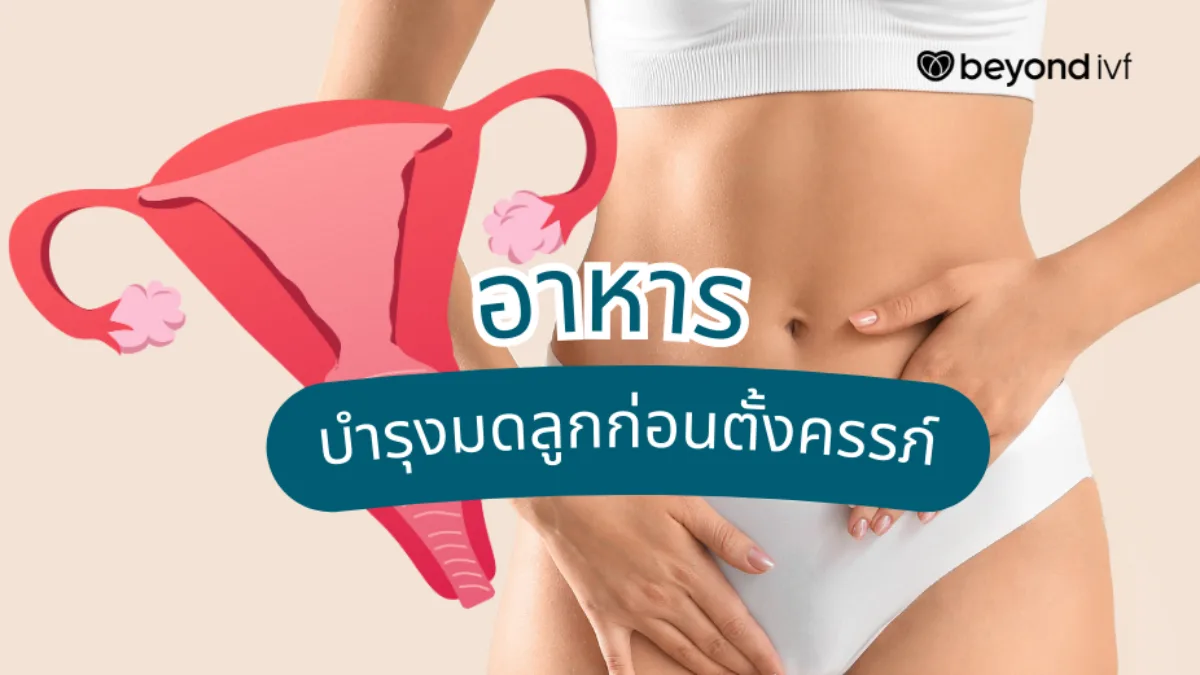The uterus is one of the most important reproductive organs in women. That’s why women should take good care of both their physical and mental health. Eating foods that nourish the uterus before pregnancy is one helpful way to increase the chances of conceiving. These foods are also rich in vitamins that support egg and uterine health, which is why they are becoming increasingly popular among women trying to conceive.
For those who are starting to take care of themselves and looking for ways to nourish their uterus, BeyondIVF, a fertility treatment center, has compiled a guide on choosing the right foods to support uterine health.
Q: Why are uterine-nourishing foods important before pregnancy? What are they?
-
Eating foods that support uterine and ovarian health helps prepare a woman’s body for pregnancy by improving uterine strength and optimal condition, making conception easier.
-
These foods help lower the risk of miscarriage and premature birth, and increase the chances of conception in women struggling with infertility.
-
Uterine-supportive foods that promote ovulation, balance female hormones, and strengthen the body with calcium should include zinc, omega-3, vitamins, iron, and protein.
-
Easily accessible foods that help support ovarian and uterine function and boost fertility include: pumpkin seeds, nuts, eggs, fresh milk, spinach, black sesame, and berries.
-
Women planning to conceive should eat these foods alongside other uterine care practices such as regular exercise and uterine massage to strengthen the reproductive system.
-
It’s also important to avoid heavy lifting and maintain a healthy body weight to prevent uterine prolapse.
What are the foods that help nourish the uterus before pregnancy?
Foods That Nourish the Uterus Before Pregnancy
-
Oysters
Ideal for women experiencing infertility or those looking to prepare their uterus for pregnancy. Oysters are rich in zinc, which helps stimulate the production of high-quality eggs. It's best to consume them before ovulation. -
Salmon
A great source of protein, omega-3 fatty acids, zinc, iron, and vitamin B12. Besides supporting uterine and ovarian health, salmon also helps balance female hormones and improve the digestive system. -
Pumpkin seeds
Rich in zinc, which helps lower the risk of miscarriage during pregnancy. They also provide omega-3 fatty acids and plant-based iron, which is more easily absorbed than animal-based iron. -
Spinach
A leafy green vegetable high in folate, which is essential for pregnancy. It helps prevent abnormal pregnancy conditions and increases the chances of conception. Regular consumption also ensures adequate dietary fiber, supporting digestion. -
Asparagus
A uterus-friendly food high in niacin and vitamin B3, which supports healthy blood circulation, strengthens bones, and reduces blood cholesterol levels. -
Beans
Beneficial for women who want to strengthen their uterus. Beans like soybeans, red beans, broad beans, winged beans, and kidney beans are high in protein and iron, promoting quality egg production and lowering the risk of uterine fibroids. -
Berries
Loaded with antioxidants, especially vitamin C, which aids cellular repair and enhances female fertility. Berries are a highly beneficial pre-pregnancy food for uterine health. -
Avocados
A fruit rich in healthy fats that help balance female hormones and prevent infertility. Avocados support egg and uterine health, helping the body get ready for pregnancy. -
Eggs
Nourish the uterus and ovaries with protein, vitamin B1, B2, calcium, and iron. Women planning pregnancy should eat one egg per day (especially duck eggs). Eggs also support brain health and cardiovascular function when consumed in moderation. -
Black sesame seeds
Consuming 3–4 teaspoons daily can help with sleep, relax the mind, and provide calcium. Proper rest supports hormonal balance, making black sesame a valuable food to strengthen eggs and the uterus. -
Tomatoes
Enhance fertility with lycopene, a powerful antioxidant that also improves skin clarity and hydration. Tomatoes support overall reproductive health, including uterine and ovarian function. -
Soy milk
Made from protein-rich soybeans, soy milk increases fertility when consumed regularly. It is also safe and beneficial during pregnancy, helping with fetal muscle development and reducing the risk of cow’s milk allergy. -
Bananas
High in potassium, vitamin B6, minerals, glucose, and fiber, bananas provide energy and regulate the nervous and muscular systems. They're filling and suitable for any time of the day. -
Whole milk
Rich in protein and calcium, milk helps stimulate ovulation and strengthen the uterus. It's especially helpful for underweight women or those with ovulation issues. -
Kaffir lime juice
Helps stimulate blood circulation and regulate menstrual cycles. It's a traditional remedy for uterine and ovarian health, supporting embryo implantation. High in vitamin C, it also strengthens the immune system.

Why is it important to nourish the uterus before pregnancy?
One of the top priorities for those preparing for pregnancy or planning to have a child is to strengthen and nourish the uterus to enhance fertility. This can be achieved through regular exercise, adequate rest, and consuming nutritious foods, especially those that support uterine health before pregnancy. A healthy and strong uterus increases the likelihood of successful embryo implantation, which in turn raises the chances of becoming pregnant.
In addition, eating foods that nourish the uterus and ovaries can help reduce the risk of miscarriage, premature birth, and can be especially beneficial for individuals experiencing infertility. For those in the preconception phase, consulting a fertility specialist for personalized advice on uterine-nourishing foods and adjusting eating habits can provide the best preparation for a healthy pregnancy.
If I want to have a healthy uterus, besides eating foods that nourish the uterus before pregnancy, what other ways are there to take care of the uterus?
Regular Exercise
In addition to eating foods that nourish the uterus before pregnancy, exercising regularly is also a way to care for the uterus. Good health goes hand in hand with exercise, and it also strengthens the uterus. Recommended exercises include swimming, yoga, aerobics, and pelvic floor exercises (which involve holding for about 5 seconds and then relaxing for 5 seconds). This can be done as often as is comfortable.
Massage to Strengthen the Uterus
Massage to strengthen the uterus, combined with eating foods that nourish the body before pregnancy, helps improve blood circulation to the uterus, fallopian tubes, and ovaries. This increases oxygen in the blood, making the uterine muscles stronger and better able to support the embryo after fertilization. When the fallopian tubes move properly, it increases the chance of the egg and sperm meeting. It also helps the uterus shed menstrual blood more effectively, reduces menstrual pain, and helps expel toxins or waste from the uterine cavity.
Regular Health Checkups
Women who are eating foods to nourish the uterus before pregnancy or planning to conceive should have regular gynecological checkups every year. Some diseases might not show symptoms early but could become severe and difficult to treat. Routine gynecological exams are designed to detect the following:
-
Screening for cervical cancer risk
-
Screening for sexually transmitted infections (STIs), such as gonorrhea, chlamydia, herpes, vaginal parasites, or HPV (Human Papillomavirus)
-
Screening for vaginal infections, such as yeast or bacterial infections
-
Diagnosing uterine problems, such as abnormal bleeding, abnormal discharge, fibroids, ovarian cysts, or uterine prolapse
-
Screening for contraceptive methods to see what is appropriate, like IUDs
-
Screening during pregnancy to assess readiness, risks, and prevention of related diseases
Find Relaxing Activities to Reduce Stress
Mental health is just as important as eating foods that nourish the uterus before pregnancy. Excessive stress can cause hormone imbalances in the body, which affects the female reproductive system, including irregular periods and uterine function.
Thus, those planning to conceive should find relaxing activities to reduce stress, such as exercise, meditation, or listening to music. Getting adequate sleep (7-8 hours) is crucial, as it helps regulate hormone production and allows the uterus and ovaries to function more effectively.
Avoid Risky Behaviors that Lead to Uterine Prolapse
One of the causes of infertility that directly affects the uterus is risky behaviors that lead to uterine prolapse (when the uterus drops). These behaviors include lifting heavy objects, being overweight, or suffering from constipation, which can put pressure on the pelvic muscles, causing the uterus to drop into the vaginal canal. In severe cases, other organs such as the intestines or bladder can prolapse into the vaginal canal.
Women planning to conceive should avoid lifting heavy objects and maintain a healthy weight by eating nourishing foods, exercising regularly, and ensuring proper pelvic health.
Conclusion: How Are Foods that Nourish the Uterus Before Pregnancy Beneficial?
Consuming foods that nourish the uterus before pregnancy is just one part of ensuring a healthy uterus and overall good physical health. It should be combined with other methods of uterine care, such as massages to strengthen the uterus, regular exercise, and avoiding lifting heavy objects. However, these self-care and uterine care methods do not guarantee that a woman will be able to conceive 100%. If pregnancy does not occur naturally after one year of trying, it is recommended to consult a doctor for a detailed diagnosis and to plan appropriate treatment.
At BeyondIVF, a fertility treatment center, we are ready to provide consultation and care for those who wish to have children, as well as offer diagnostic services to find the cause of infertility. Our team of specialized doctors has over 20 years of experience in infertility treatments, and we have a state-of-the-art laboratory. For more information, feel free to reach out via Line@ : @beyondivf






